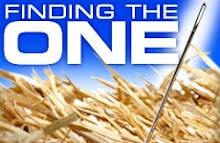When you call, you should have a list of specific questions.
In order to receive good answers, direct questions are a must. A written list of questions is necessary. You may think that you know in your mind what questions you wish to have answered, but during a conversation, it is easy to get sidetracked and distracted, and then forget to find out about important points.
With a written list you can check off the questions as they get answered. Take notes of the answers. Ask the person to give you a second as you are taking notes. Even if you have a good memory, it is easy to forget the details. Even more, it is useful to write the exact words (adjectives) you hear, so your mind does not supply its own interpretation of what you heard.
It is easy to be influenced without realizing it. If the person on the other end of the phone is enthusiastic about the prospect, one is easily carried along by the enthusiasm and may interpret what one hears subjectively. If we write the exact words, we can review the conversation without that influence. Although, (yes, I am being contrary) impressions should be noted as well.
Asking what can you tell me about so and so is not an answerable question. First of all as explained previously one can only answer questions that are specific in nature and not general questions. I will give examples of specific questions in a separate blog.
I also believe in making the calls myself and not having another person call for me. This is my personal preference because when you listen to someone’s description, often you can hear between the lines what they are not saying. The tone of voice will give you pointers. The pauses, the type of adjectives used will tell you more than just “Merriam-Webster’s” definition.
For example, you call someone and after the first few awkward explanations, the conversation takes a warmer tone. The person genuinely likes the one you are discussing, and it comes through in the tone of their voice. Or someone is not very familiar with them, so they may sound hesitant. Someone may describe the person as “nice”, “pleasant”, etc. These are “milquetoast” (tame) adjectives, too bland to describe someone who certainly has some admirable characteristics.
The exception to calling references yourself is if the young man or lady calls for herself. That is a much more difficult call. It would be preferred if at all possible that a mashpia or good (married, older) friend make the calls for the one involved. Aside from the reticence involved in asking information for oneself, and the reciprocal reticence of not wanting to tell the person directly involved less than laudatory information, there is the stress of finding out again and again that the name suggested is very far from the requested ideal. Finding out again and again that the proposed shidduch is only a match in the very basic terms (one is a girl and one is a boy) depresses and stresses out the young man or young lady making the calls.
I know of a mashpia who told his mushpa to pass along to him all the names he is offered and he would make the calls. If anything appropriate was suggested then he would pass back the name.
Wednesday, May 13, 2009
Calling for References
Posted by Basmelech at 13:49
Labels: Shidduchim Information gathering and giving, Loshen Hora, Priorities, qualities, references, requirements, research
Subscribe to:
Post Comments (Atom)




0 comments:
Post a Comment